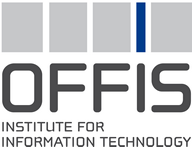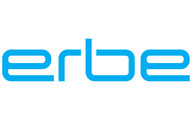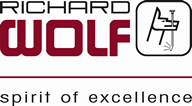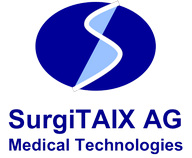 OFFIS Institute for Information Technology OFFIS Institute for Information TechnologyThe OFFIS Institute for Information Technology, founded in 1991, currently employs around 230 people and examines new forms of information processing in hardware and software systems as an affiliated institute of the University of Oldenburg. The R&D Department Health has been involved with the technical integration of IT systems in healthcare for more than 20 years. Research focuses on the “structure-preserving” transmission of health data based on open standards (IHE, HL7, DICOM, etc.) as well as the use of health data. |
 Aesculap AG Aesculap AGFounded in 1867, the company is currently focused on products and services for all core surgical processes and interventional cardiology, from instruments to implants and surgical sutures. Since 1997, Aesculap AG has been integrated into the B. Braun Group as a division. The B.Braun Group employs more than 60,000 people worldwide. Of the approx. 12,000 employees of Aesculap AG, more than 3,600 work at the company headquarters in Tuttlingen. Aesculap sees itself as a “solution provider” for the key indications: classical surgery, neurosurgery, interventional vascular diagnostics and vascular therapy, cardiothoracic surgery, orthopedic joint replacement and regenerative therapies, laparoscopy, degenerative spinal disorders. The field of indication laparoscopy includes the topics of HF surgery and endoscopy that are relevant for this project. |
BOWA develops and manufactures sophisticated medical technology solutions with currently approx. 700 employees and since 1977 has continuously developed into a technologically leading provider of energy-based surgery systems. With its high level of vertical range of manufacture, far-reaching technology mix and engineering performance, BOWA realizes new approaches to tackling application-related tasks in both high-frequency surgery and ultrasound surgery. |
 Drägerwerk AG & Co. KGaA (associated partner) Drägerwerk AG & Co. KGaA (associated partner) Dräger is an international leader in medical and safety technology. Dräger products protect, support and save lives. Founded in 1889, Dräger achieved worldwide sales of around € 2.6 billion in 2018. The Lübeck-based company is represented in more than 190 countries and employs more than 14,000 people worldwide. Further information at www.draeger.com. |
 embeX GmbH embeX GmbHAs a development service provider with 150 employees, embeX develops complete medical devices, electronic components, firmware and construction. The development takes place in the customer process or in our own ISO 13485 certified process. The field of medical devices starts with small portable devices and ends with complex systems such as medical robots and implants. They also meet the highest standards such as risk class III (MDR), software security class C (IEC 62304) and cyber security requirements. Mastering the complexity of challenging development projects is arguably the most important competence of the business unit. In addition, we advise our customers in the area of risk management, standard-compliant documentation and usability. The timely provision of hardware and software as well as the documentation suitable for successful approval in Europe and the USA is our claim. Upon request, we transfer our know-how and the standard-compliant processes to our customers. |
 Erbe Elektromedizin GmbH Erbe Elektromedizin GmbHAs an owner-managed family business, Erbe develops, produces and sells surgical systems worldwide for professional use in a wide variety of medical fields. Erbe technology is leading in many countries and is an integral part of the surgical workflow. The portfolio includes devices and instruments for electrosurgery, thermofusion, plasma surgery, cryosurgery and hydrosurgery. The combination of these technologies enables innovative applications, which are mainly used in general surgery, gastroenterology, gynecology, pneumology and urology. Erbe employs more than 950 people worldwide, including 630 at the Tübingen and Rangendingen locations. Around 120 people work in research and development. The intensive exchange with well-known users from universities and clinics is the key to success, with which heir successfully advances the development in medicine. |
 KARL STORZ SE & Co. KG KARL STORZ SE & Co. KG KARL STORZ is a leading manufacturer in endoscopy and offers systems for human and veterinary medicine as well as for industrial applications. In addition to endoscopes, instruments, devices and camera systems, STORZ also offers a market-proven surgical system solution (OR1 ™), which networks more than 90 medical devices from various manufacturers. a. the realistic display and control of networked medical devices, which includes digital image and video documentation, audiovisualized video stream control and transmission, and connectivity to IT systems. |
 Olympus Winter & Ibe GmbH Olympus Winter & Ibe GmbHOlympus develops and produces diagnostic and therapeutic system solutions in endoscopy. As part of the Olympus Group, 1,600 employees work in five European technology centers. With their know-how, they develop innovative products, new solutions and tailor-made applications for the customer, from the single hand instrument to the complete OR. The focus is always on patient safety. By integrating functions and tailoring to users’ needs, minimally invasive procedures become faster and safer. |
Open Connections was founded in 2013 by employees of the OFFIS Institute for Information Technology in Oldenburg. At the moment, Open Connections GmbH employs one permanent employee, Michael Onken, and uses a few freelancers if necessary. Open Connections provides worldwide training, consulting and software development services in DICOM and other medical communication standards. |
 Richard Wolf GmbH (associated partner) Richard Wolf GmbH (associated partner) Richard Wolf GmbH is a German, medium-sized medical technology company that offers a wide range of products and solutions for endoscopy and extracorporeal shock wave treatment. The portfolio is complemented by the most modern, integrated OR management systems and technical endoscopes for aviation. With more than 100 years of experience, the Wolf Group contributes to the development of innovative medical products and the continuous further development of patient-friendly minimally invasive treatment methods. The core competence and experience lies in the area of endoscopic systems for various fields of human medicine. Richard Wolf employs around 1,500 people worldwide, around 1,100 of them in Germany. With 16 branches and 130 foreign representations, the company is well positioned internationally. The headquarters and location for production, development and sales is in Knittlingen in Baden-Württemberg. |
 Schölly Fiberoptic GmbH (associated partner) Schölly Fiberoptic GmbH (associated partner) Schölly Fiberoptic is a global family business headquartered in Denzlingen, Baden-Württemberg. The focus is on engineering and production of customized visualization systems for the Medical Endoscopy and Visual Inspection business segments. From endoscopes, camera systems and light modules to complex visualization systems, Schölly offers a wide range of products and services. The company was and is the driving force in the transition from 2D to 3D visualization systems and miniaturization of endoscopes. The company was founded in 1973. Six sales and service branches, together with the head office, are responsible for looking after global customers as well as for the acquisition of new projects. More information at www.schoelly.de. |
 Söring GmbH (associated partner) Söring GmbH (associated partner) Söring GmbH was founded in 1985 by Holger Söring with headquarters in Quickborn and since then has been producing high-quality products for ultrasound surgery. Even today, the company is family-owned and, with its applications for liver, neuro and spine surgery and wound treatment, is the world leader in ultrasound technology. At Söring everything is “Made in Germany”: from development through production to sales. The broad product range is always optimized and expanded in close cooperation with leading users. After all, customer satisfaction comes first at Söring. Not least because of this, the company offers a comprehensive maintenance and service program. Further information at www.soering.de. |
Steute Technologies is the market leader as a supplier of medical switchgear. For around thirty years, steute has been developing and manufacturing high-quality switchgear that is used in a wide variety of medical devices – for example in high-frequency surgery, ophthalmology (phacoemulsification), dental technology and imaging diagnostic procedures such as CT and MRI. Some of the switching systems perform very complex operating functions; for signal transmission, radio standards are available that have been specially developed for medical technology. |
 SurgiTAIX AG (associated partner) SurgiTAIX AG (associated partner)SurgiTAIX was founded in 2000 as a spin-off of the Helmholtz Institute for Biomedical Engineering of RWTH Aachen University. Core areas of activity are the research, development and evaluation of new processes and systems up to the implementation and approval as a medical device. SurgiTAIX AG sees itself as a transfer service provider, developing the results from current research projects to the finished medical device. To this end, SurgiTAIX AG participates in medical research projects, especially in the field of open networking, one of its core areas of expertise. In addition, SurgiTAIX has been working for several years on the implementation of web service libraries for the networking of medical technology products and has deployed these prototypes nationwide to demonstrators in the projects smartOR, OR.NET, MoVE, ZiMT. |
 Trusted Solutions Foundry, Inc. (associated partner) Trusted Solutions Foundry, Inc. (associated partner) Trusted Solutions Foundry, located in San Diego, California, has provided health and medical device informatics expertise to the global community for over 30 years. Since the mid-90’s, it has focused on advancing the development, implementation and use of healthcare device interoperability standards, with a primary focus on acute care devices such as infusion pumps, ventilators and physiological monitors, This includes providing leadership and expertise in the ISO/IEEE 11073 standards family, as well as the Health Level 7 (HL7) and Integrating the Healthcare Enterprise (IHE) device standards groups. In addition to the organization’s technical activities, it actively advances medical device interoperability in other standards and advocacy organizations including HIMSS, ACCE and AAMI, with a focus on health device interoperability across the use landscape – hospital to clinic to home – and tightly coupling SDC with FHIR enabling comprehensive, cohesive solutions. |